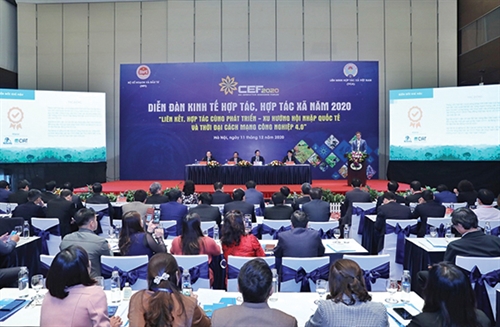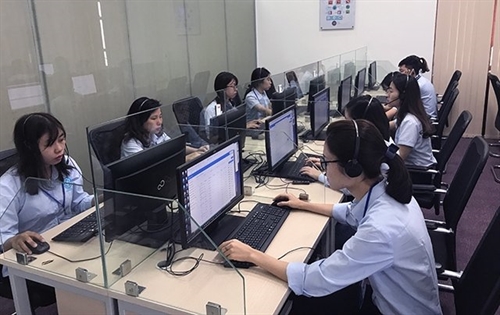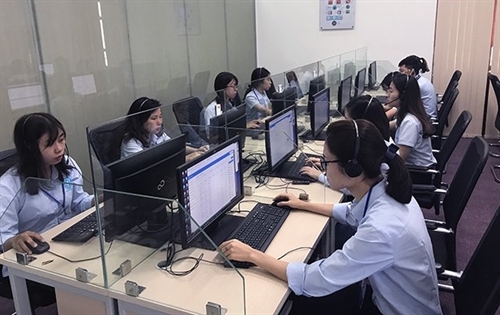The Prime Minister has recently issued the National Strategy for the Industry 4.0 until 2030 to fulfill targets set forth in the Politburo’s Resolution 52-NQ/TW that outlines policies guiding Vietnam’s active involvement in the revolution.
 |
| The 2020 national forum on collective economy and cooperatives, held in Hanoi on December 11, 2020, under the theme “Connection and cooperation for mutual development - a trend for international integration in the era of Industry 4.0” Photo: Danh Lam/VNA |
According to Decision 2289/QD-TTg, the strategy’s objectives are to take full advantage of opportunities brought about by the Industry 4.0; fundamentally master and widely apply advanced technologies in different social and economic domains; gradually develop modern technologies in support of renewing Vietnam’s growth model and promoting economic restructuring in line with the implementation of strategic breakthroughs and national modernization; and promote development of the digital economy.
The strategy also aims for the country’s robust and sustainable development based on science, technology, innovation and high-quality human resources; improvement of people’s life quality, social welfare and well-being; firm safeguarding of national defense and security and protection of environment and eco-system; improvement of effectiveness of international integration and utilization of high technology to ensure cyber security.
Under the strategy, Vietnam is expected to be among the top 40 performers in the Global Innovation Index (GII), the top 30 in the International Telecommunication Union (ITU)’s Global Cybersecurity Index (GCI) and the top 50 in the United Nations (UN)’s e-Government Development Index (EGDI) by 2030.
The country also targets the digital economy contributing to 30 percent of the GDP, productivity growing by 7.5 percent annually on average, universal access to fiber-optic Internet and 5G services, the development of a digital government, and the establishment of smart cities in key economic regions throughout the country which will be connected with the regional and global networks of smart cities.
To this end, Vietnam plans to further improve institutional quality and policy-making capacity; promote development of infrastructure facilities, databases, and human resources; build an e-government operating on a digital platform; raise national innovative capacity; invest in and develop a number of priority technologies for the active engagement in the Industry 4.0, such as robotics, advanced materials, renewable energy, artificial intelligence (AI), Internet of Things (IoT), big data and blockchain. The country will also expand international cooperation and integration in science and technology, particularly priority technologies for proactive involvement in the revolution.
Additionally, the Government will step up the development of high-speed Internet services and secured digital infrastructure to meet demand for big data connection and processing; the application of digital technology in state administration (GovTech) and provision of public services in all areas; and building of the real-time information system to support the Government’s governance and administration.- (VLLF)









